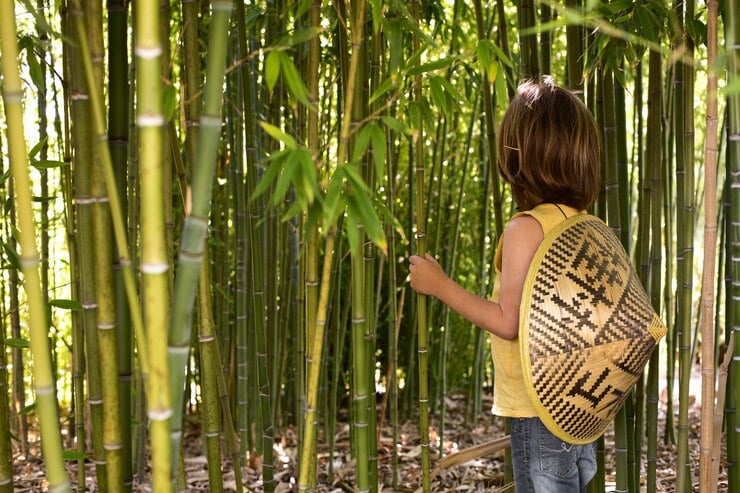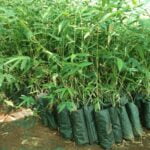Table of Contents
Bamboo: Long-Term Strategies for a Greener Future
Bamboo is a remarkable plant that holds significant potential for ecological conservation and sustainable development. As a fast-growing and versatile plant, bamboo plays a vital role in various ecosystems and offers numerous environmental benefits.
1. Carbon sequestration:
Bamboo absorbs large amounts of carbon dioxide (CO2) during its rapid growth phase, effectively storing carbon and reducing greenhouse gas emissions. This makes bamboo a valuable asset in the global fight against climate change.
2. Soil conservation:
Bamboo’s extensive root system helps stabilize soil, reducing erosion and preventing landslides in hilly regions. The plant’s ability to thrive in nutrient-poor soil also makes it ideal for rehabilitating degraded land and improving soil fertility.
3. Biodiversity:
Bamboo forests provide a rich habitat for various species of flora and fauna, promoting biodiversity. Many animals, including endangered species such as the Giant Panda, rely on bamboo as a primary food source or shelter.
4. Water conservation:
Bamboo’s dense root system helps regulate the water cycle, reducing runoff and retaining water in the soil. This can help maintain a healthy balance in the ecosystem and prevent water-related issues such as flooding and drought.
5. Renewable resource:
Bamboo is one of the fastest-growing plants globally, with some species capable of growing up to one meter per day. This rapid growth rate allows for frequent harvesting without depleting the natural resource, making it a highly sustainable alternative to traditional timber and other materials.
6. Versatility:
Bamboo is used in various applications, including construction, furniture, paper and pulp, textiles, and energy production. By replacing non-renewable resources with bamboo, we can reduce the environmental impact of these industries and promote a greener, more sustainable future.
7. Social-economic benefits:
Bamboo cultivation and processing can provide significant economic opportunities for local communities, particularly in rural areas. The bamboo industry can generate income, create jobs, and contribute to poverty alleviation in developing regions.
To harness the ecological potential of bamboo, it is crucial to adopt sustainable cultivation and management practices. This includes the use of appropriate species for specific regions, responsible harvesting techniques, and integrated pest management. By promoting the use of bamboo as an eco- friendly alternative to traditional materials, we can support sustainable development and protect our planet’s precious ecosystems.
ये भी पढ़ें: Bamboo Farming: बंपर होगी कमाई, खेत के किनारे-किनारे करें ये खेती, हो जाएंगे मालामाल
ये भी पढ़ें: Steps of Bamboo Cultivation
For more details visit our website: www.bambooramagro.com





